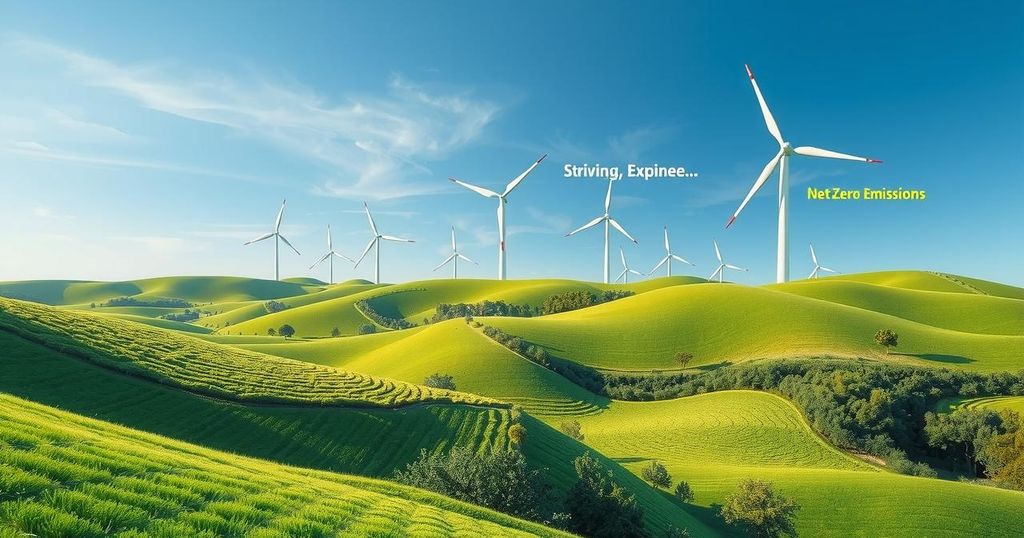Nepal targets achieving net zero carbon emissions by 2045, aiming for a transition to middle-income status by 2026. Challenges include climate vulnerability and reliance on fossil fuels. The government has outlined specific NDC goals, with considerable costs and a need for international backing. Despite difficulties, opportunities for renewable energy expansion exist, necessitating careful evaluations to balance economic growth and sustainability.
As nations worldwide strive toward sustainability, Nepal seeks to achieve net zero carbon emissions by 2045—five years ahead of the global target. This ambition aligns with Nepal’s goal of transitioning from a least developed country to a middle-income nation by 2026. However, the country faces challenges due to its reliance on fossil fuels and the impacts of climate change on vulnerable communities.
Despite contributing only 0.03 percent of global carbon emissions, Nepal is significantly impacted by climate-related crises such as erratic rains and natural disasters. Under the 2015 Paris Agreement, Nepal submitted its initial Nationally Determined Contributions (NDC) in 2016, aiming to enhance clean energy and carbon sequestration. Nevertheless, a 2020 assessment highlighted that Nepal struggled to meet its initial NDC goals, citing political barriers and institutional challenges.
Nepal’s second NDC, submitted in 2020, outlined specific targets across various sectors including energy, transport, and agriculture, alongside adaptation measures. Notably, countries with larger emissions like China, India, and the EU have set later net zero deadlines to accommodate their economic ambitions, which continues to illustrate the disparity in commitments among nations.
To meet NDC targets, the Government of Nepal has initiated an implementation plan with a projected cost of around $33 billion, of which approximately $3.4 billion focuses on hydroelectric generation using domestic resources. However, most emission reduction targets are contingent upon international support.
Significant obstacles remain, including Nepal’s dependence on biomass, traditional fuels, and insufficient infrastructure. Though electricity demand is surging, inefficient tax policies complicate the adoption of electric vehicles, hindering progress in the transport sector. The successful transition to a low-carbon economy demands a critical balance between environmental goals and economic stability.
Despite these challenges, Nepal possesses potential avenues for a low-carbon transition, particularly through the expansion of its untapped hydroelectricity capacity. The path to achieving net zero targets necessitates careful evaluation of sectoral impacts and economic implications, learning from the experiences of other countries.
While Nepal’s commitment to achieving net zero emissions by 2045 is commendable, it will require considerable investments and restructuring across critical sectors. Stakeholders must conduct comprehensive analyses to align Nepal’s development goals with sustainable practices, ensuring collaboration and participation from all parties involved.
Nepal is set on a challenging yet ambitious path toward achieving net zero emissions by 2045. While it faces substantial barriers, including reliance on fossil fuels and the impact of climate change, the country has made significant commitments under international agreements. Successful implementation will necessitate financial support, effective policy frameworks, and stakeholder engagement to balance economic growth with sustainability. As the nation prepares its next NDC, careful planning and collaboration will be essential for realizing its goals.
Original Source: asianews.network




